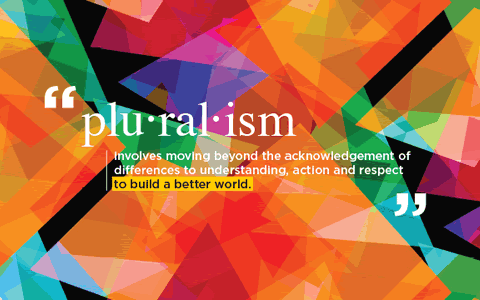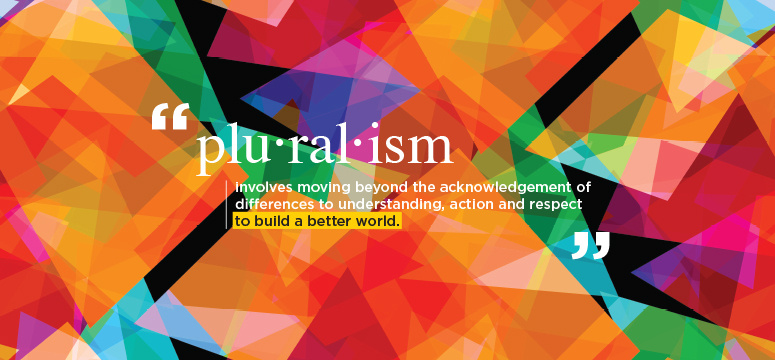
To Differ Without Deferring
The following article came to our attention via MercatorNet , which stands for reframing ethical and policy debates in terms of human dignity, not dollars and cents or political calculation. They specialise in navigating modern complexities with a focus on human dignity and the family. Cardus Law is a research body that is particularly interested the role of religious freedom in sustaining an ordered society where citizens’ faith informs a vibrant public debate and where the public and private expression of religious faith helps to shape our common life.

By Andrew Bennett, program director for Cardus Law, Canada
In a truly pluralist democracy, acceptance of difference must include the right to hold different theological and different ethical and moral positions even when they go against the prevailing spirit of our age. So long as these views are held and advanced peacefully and do not advocate physical violence that would violate human dignity, they must be allowed to inhabit the public space.
We must reject an illiberal totalitarianism that seeks to establish socially correct and acceptable beliefs treating any peacefully held contrary view as deviant and something to be silenced. There must be no totalitarianism of accepted belief or accepted opinion in our country.
It is not by sheer accident that freedom of religion or conscience appears as the first fundamental freedom in s. 2a of the Charter. If a citizen does not enjoy the foundational freedom to live and exercise religious beliefs both publicly and privately, and to have this freedom vigorously defended by all of our institutions, then we cannot build a truly pluralist and diverse society where difference is viewed in a positive light.
A true pluralism must embrace and enable difference, but not simply a subset of differences that may be permitted and emboldened by a given set of elites at a given moment in our history. This is an illiberal pluralism that embraces a closed secularism where the state imposes values and dictates what religious beliefs are publicly permissible.
To paraphrase a prominent Catholic bishop:
Democracy has many merits, but it does not determine the truth.
The freedom to practice one’s deeply held religious faith both publicly and privately is a freedom that implicitly advances and supports this true pluralism by protecting and continually upholding difference. To champion religious freedom is also to implicitly accept that there are those in our common life who will hold and will promote beliefs, theological and philosophical, moral, and ethical, that many of us will vehemently reject. And that’s okay. It is the proper role of the State to ensure that no one religious belief system, or for that matter a secular belief system, dictates what one must believe and what one must do.
All faith communities along with political and ideological communities must commit to inhabiting the public space in peace. They must commit to engage in activities that have as their ultimate goal the promotion of human flourishing, recognition of human dignity, and an acceptance of different beliefs co-existing in the public square.
Freedom of religion or conscience is essential in the development and defence of a diverse society where human beings are able to flourish and have their dignity acknowledged. How then does religious freedom reveal human dignity? Freedom of religion relates directly to the metaphysical need of every human being to freely contemplate and adhere to beliefs that answer these questions: “Who am I? Who am I in relationship to you? Who am I in relationship to the country and world in which I live? And, who am I in relationship to God, or to a particular philosophy to which I choose to adhere?”
It can be argued that these questions define the relationship between religious freedom and human dignity. If our concept of freedom is purely one of economic, social, and/or political freedom divorced from this existential freedom then our participation in society will be frustrated. How we understand ourselves in a metaphysical sense cannot be divorced from our political, social, and economic selves. Indeed, in most of the world religious faith defines political, social, and economic action. All of these freedoms speak to human freedom itself and its defence so as to enable human flourishing.
If Muslims, Christians, Sikhs or Jews…are constrained in living out their faith through practice, they will become increasingly marginalised and our society will be increasingly atomised. The marginalisation of people of faith and the diverse beliefs they profess can have two consequences, both of which hamper the further strengthening of our common life:
- Firstly, such a marginalisation impoverishes our public debate by pushing out valuable perspectives drawn from deep wells of religious tradition. In so doing, people who profess these traditions will view themselves as being undervalued within our political life, and the religious beliefs they deeply hold as being unworthy of public consideration. Their ability to full exercise their citizenship is diminished as a result.
- Secondly, as people of faith and their communities feel increasingly vulnerable and believe that they can no longer participate in the common life due to unreasonable constraints placed upon their faith and conscience, they may choose to check out of mainstream society altogether. While this may allow them to live their faith and support their faith-based institutions more-or-less independently, it represents a grave loss to our common life and is essentially a failure of our political society to embrace these citizens.
The State that acknowledges and respects religious freedom as being intrinsically linked to human dignity is a State that upholds true religious freedom. It respects the sovereignty of religious bodies and faith communities to exercise faith freely and in good conscience in both public and private lives. Likewise members of all faith communities must respect the values of our liberal democratic society, in particular, the rule of law exercised by the state insomuch as those laws are just, do not counter the moral law, and are ordered towards the common good and the flourishing of all members of society.
A true pluralism respects disagreement, often profound disagreement, between people of different faiths, ideologies, and backgrounds. In building our common life we must seek to build a society in which people flourish and are able to live their lives of faithfully, both publicly and privately. In building this common life there must be the space to differ and not to defer, to have the freedom to live a public faith and not be driven to privatise one’s faith in order to be accepted in the public square.
A liberal democracy needs to be strong enough in its embrace of the rule of law, freedom, and human rights to guarantee that religious differences and differences in belief more generally – differences that often have sharp edges – can exist.
A liberal democracy protects and opens wide the public square for these disagreements to exist. The public square also beckons us, calling us to meet each other there, in our differences and our diversity, and to there encounter our shared humanity in solidarity with one another.
Andrew Bennett is Senior Fellow at Cardus and program director for Cardus Law. Reproduced with permission from Convivium.
Copyright © Andrew Bennett.
Convivium means living together. It is an online space that brings together citizens of differing convictions and religious confessions to contend for the role of faith in our common life.





